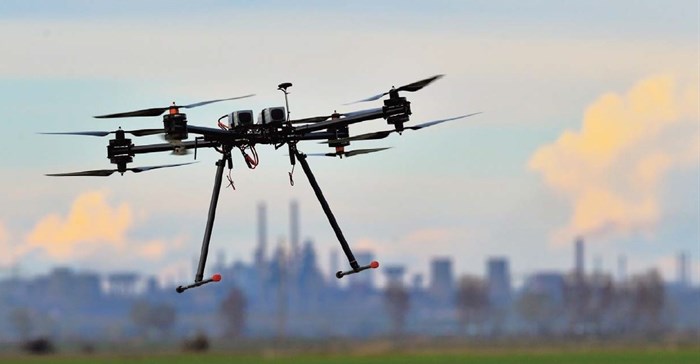Drone industry closing the skills gap through training

Statistic South Africa’s Quarterly Labour Force Survey (QLFS) in February indicated that employment grew by 235,000 and the number of job seekers declined by approximately 92,000. This means the country’s overall unemployment rate dropped by 0.6% to 26.5%; slightly down from 26.6% last year.
And according to Sean Reitz, CEO of United Drone Holdings (UDH) - an entrepreneurial focused drone-service business, the drone industry can contribute further to job creation. He says an unbelievable amount of employment opportunities exist in the drone industry, provided candidates are the “right fit” and that suitably structured and compliant companies are authorised to trade by the Civil Aviation Authority (CAA).
The drone industry has the potential to create around 1000 commercial job opportunities in a variety of sectors. However, according to Reitz, a “limiting factor” companies face is the red tape involved in the regulation process, which makes it challenging to get licensed.
Job creation opportunity
A PwC Report titled: PwC global report on commercial applications of drone technology, published in 2016, estimates that the global market opportunity for drone applications sits at $127bn. Applications for drones to reduce cost, improve efficiency and, most of all, increase safety, exist in most industrial sectors and it is here that significant job creation can be achieved.
Reitz says running a drone business in South Africa is not the domain of the “sole trader” and this is where the challenge lies. “One needs to think about drones in a similar light to an airline company where people, capital, and expertise come together to create an organisation that can deliver on the safety mandate of the CAA,” he says.
Training drone pilots
One of UDH’s core focus areas is on training drone pilots and producing graduates “who are committed and who take the job seriously”.
“Training is important, but so is recruiting the right candidates for this training. It starts with the individual. Much thought needs to go into whether you are suited to becoming a drone pilot. It’s not an easy job, it’s not a 9-5 job and it’s not always glamorous either,” Reitz says.

The RPAS Training Academy offers the Gold Standard in drone pilot training and guarantees that students will undergo a comprehensive, in-depth and up-to-date programme, fully endorsed by the CAA. In addition to the CAA’s RPL pilot course, the company has added industry-specific courses aimed at creating capable and competent operators that can successfully be deployed into a team on site.
“Through our training, we ensure our graduates are ready to tackle problems and conditions in this complex field. For our own operations, we aim to enlist the right people with the right level of commitment to this programme. And with a drone license, the right attitude and capability, candidates are likely to manage a team and run a full operation within a year. The opportunities for growth are endless,” he says.
No past experience necessary
And the good news is – candidates require no past experience as drone pilots to enlist in the programme, initial training comprises of how to fly an AKY-6 Kopter (6.5kgs) and a Discovery Aircraft with a 1.5-metre wingspan under the guidance of experienced, highly-skilled drone pilots. Once the RPL course has been completed, students proceed to complete task-specific courses which include the use of specialised software and sensors.
Reitz says there is a range of drones and the type of drone a candidate operates is largely dependent on the type of work they do. He added that in addition to mining and agricultural applications, other industries like safety and security which includes the SAPS; forensics and property, are making use of drone technology.
“Drones do things humans can’t. The training programme covers exactly what candidates need to know to become drone pilots and teaches them how to become confident in flying. If you want to succeed, there are many building blocks to ensure you get there. Start by familiarising yourself with the industry you aim to be a part of, know the industry and understand it. If you are able to relate, you will be committed and commitment is key,” Reitz says.




















